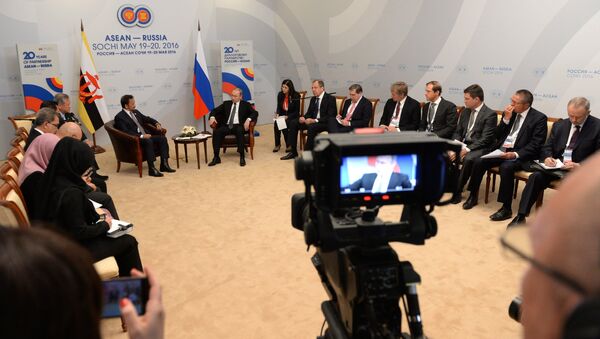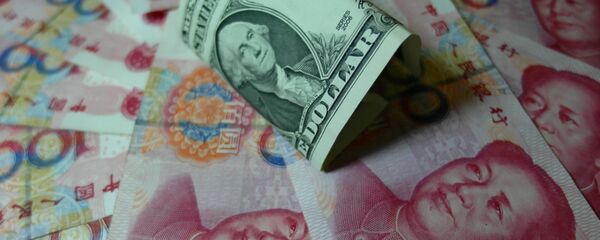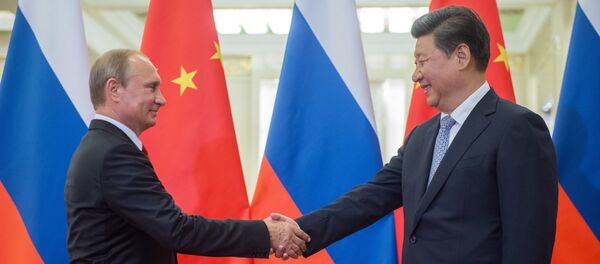On May 19-20 the Russian city of Sochi hosted the Russia-ASEAN summit marking the 20th anniversary of partnership between Russia and the emerging economies of Southeast Asia which they formalized back in July 1996.
The summit brought together the leaders of Brunei-Darussalam, Cambodia, Indonesia, Laos, Malaysia, Myanmar, the Philippines, Singapore, Thailand and Vietnam.
Russian President Vladimir Putin held a series of bilateral meetings with the leaders of the ASEAN "top ten" in non-stop regime. The issues discussed during the meetings included mutual trade, energy and weapons supplies, Russia's space technologies, cooperation in tourism sphere.
"We are interested in expanding our relationship and we will do everything to support it, and I am now addressing business representatives, we will do everything to foster conditions for common work, both in the Russian market and in the ASEAN countries' markets," Putin told the Russia-ASEAN Business Forum.
What is more important, ASEAN countries are interested in further Eurasian integration, China's CBNTV stresses. The media outlet calls attention to the fact that ASEAN has already become a unified economic space and now seeks to establish more close ties with the Eurasian Economic Union (EEU, EAEU) comprising Russia, Armenia, Belarus, Kazakhstan and Kyrgyzstan.
In his interview with Sputnik ASEAN Secretary-General Le Luong Minh underscored that the ASEAN and the EAEU have great potential for cooperation as they share the same goals in the Eurasian region.
"We have the same goals including freedom of movement of goods and services, a goal of increasing connectivity. We have the same goals of integration and a number of ASEAN countries are looking towards partnership with the EAEU. We see the potential for cooperation with the EAEU," Le Luong Minh told Sputnik.
Russian Chamber of Commerce and Industry President Sergey Katyrin believes that all ASEAN countries will soon ink the free trade zone agreement with the EAEU.
What lies at the root of the Kremlin's diplomatic charm offensive?
According to CBNTV, the trigger for Russia's more active efforts aimed at involving the Southeast Asian nations is the Trans-Pacific Partnership (TPP) project championed by the United States.
By strengthening collaboration with the ASEAN bloc, Russia aims to diminish the negative impact of the TPP on its economy.
However, much remains to be done, the media outlet notes: the ASEAN-Russian trade volume has decreased in the last five years in comparison with the previous 5-year period; the amount of Russia's direct investments in ASEAN economies has plummeted from $540 million in 2013 to $30 million in 2014. Today Russia's investment activity in the region leaves a lot to be desired, according to CBNTV.
In light of this, bolstering the Russo-ASEAN collaboration is the issue of an ultimate importance for the Kremlin, the media outlet stresses, drawing attention to the fact that China, Japan and South Korea have long ago concluded free trade zone agreements with ASEAN.
Still Moscow has a number of competitive advantages that makes it especially interesting to the Asian bloc: the biggest country on the continent and a leading member of the growing EAEU organization, Russia possesses both resources and unique technological expertise to facilitate the region's growth. Moreover, Moscow is not an economic "rival" but a partner to China, South Korea and Japan.
At the same time the Sino-Russian synergy is the key to the development of the pan-Eurasian New Silk Road project, kicked off by Beijing.
As Philippine Secretary of Science and Technology Mario Montejo told Sputnik:
"The Commemorative Summit has affirmed that Russia is an important dialogue partner for ASEAN. The Summit showed that there is a strong political commitment for us to broaden and deepen cooperation, and that is reflected in the Sochi Declaration and the new ASEAN-Russia Plan of Action."





